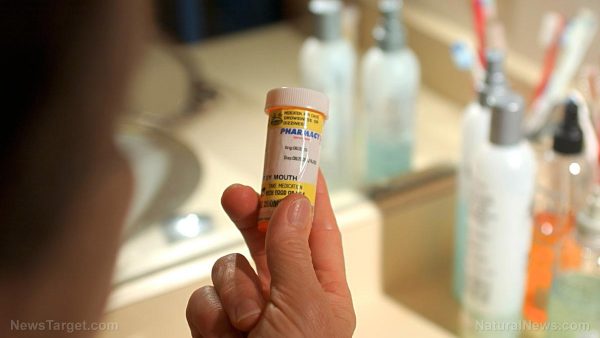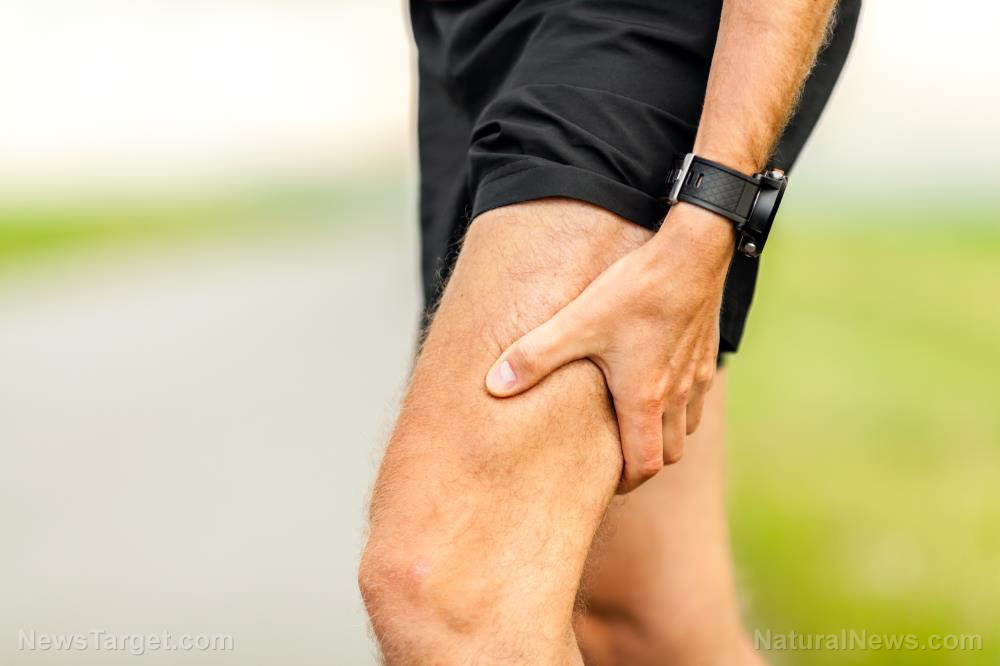Are we a nation of drugged-up zombies? Research reveals most people would rather pop a pill than exercise
05/15/2018 / By Carol Anderson

Americans are known to be dependent on prescribed drugs. In fact, it is believed that we consume more pills far more than any other country. When we feel sick, popping a pill seems like the easier way to treat our sickness than go through a long process of changing lifestyle routines.
Today, drinking a cup of tea or taking a pill are the ways to go to address one of the most common sicknesses in the U.S. which is high blood pressure. Meanwhile, exercising, an important element needed to stay healthy, has become one of the least favorite treatments to address the issue.
In a recent survey, more than 1,000 respondents were told to imagine they were suffering from high blood pressure and to choose which among four treatments are they willing to adopt.
Results show that 79 percent were willing to take a pill daily to extend their life span for another year. For an extra one year, 90 percent were willing while 96 percent would for an extra five years.
The second option, which was to drink tea, also had favorable results. For a one-month life extension, 78 percent were willing to have tea everyday while 91 percent and 96 percent agreed to drink a cup a day for a one-year and five-year extension respectively.
Exercise was given as the third treatment and 63 percent were willing to do physical activities to extend their life span for another month, 85 percent would do it to give them an extra year, while 93 percent said yes to exercising as long as they got a five-year extension in life.
Lastly, it appeared respondents weren’t much into injections as only 68 percent would take shots every six months to prolong their lives for one month, 85 percent for a one-year extension and 93 percent for an extra five years. The results for taking a shot monthly were even lower.
In the study, it was observed that people were more likely to agree to do something if it would benefit them more. In this case, more participants agreed to exercise only if it guaranteed an additional five years to their life span. However, researchers believe that their results would have been differed had they asked older people to participate — seeing as they are more likely to suffer from high blood pressure. Admittedly, respondents were aged under 45.
The study’s lead author and assistant professor of cardiovascular medicine in the Center for Outcomes Research and Evaluation at Yale School of Medicine in New Haven, CT., Erica Spatz, M.D., M.H.S., said, “Our findings demonstrate that people naturally assign different weights to the pluses and minuses of interventions to improve cardiovascular health.” In addition, she revealed there is a need to put an extra effort in determining other factors that may affect a person’s decision and willingness to accept treatments or to do physical activities on a regular basis. (Related: Cut your sick days with meditation and exercise.)
High blood pressure is a big issue in the U.S. as around 75 million adults are diagnosed with this case but only 54 percent of them have their conditions under control. It can also lead to other more life-threatening health problems such as heart disease and stroke. What’s even more alarming is the fact that it has no signs or symptoms.
The American Heart Association suggests leading a healthier lifestyle to reduce the risk of getting high blood pressure. A regular check up with a doctor, a balanced diet, exercise, managing stress, watching one’s weight and quitting smoking are some of the best ways to avoid complications.
Sources include:
Tagged Under: cardiovascular disease, cardiovascular health, daily exercise, diagnosis, exercise, healthy diet, heart attack, heart disease, heart health, high blood, high blood pressure, hypertension, physical exercise, physical health, prevention, quick fixes, quitting smoking, Silent Killer, stroke, treatments




















